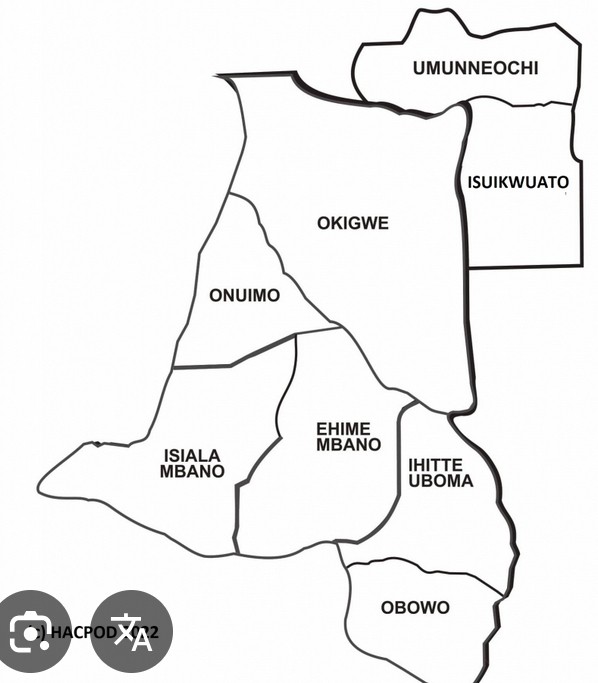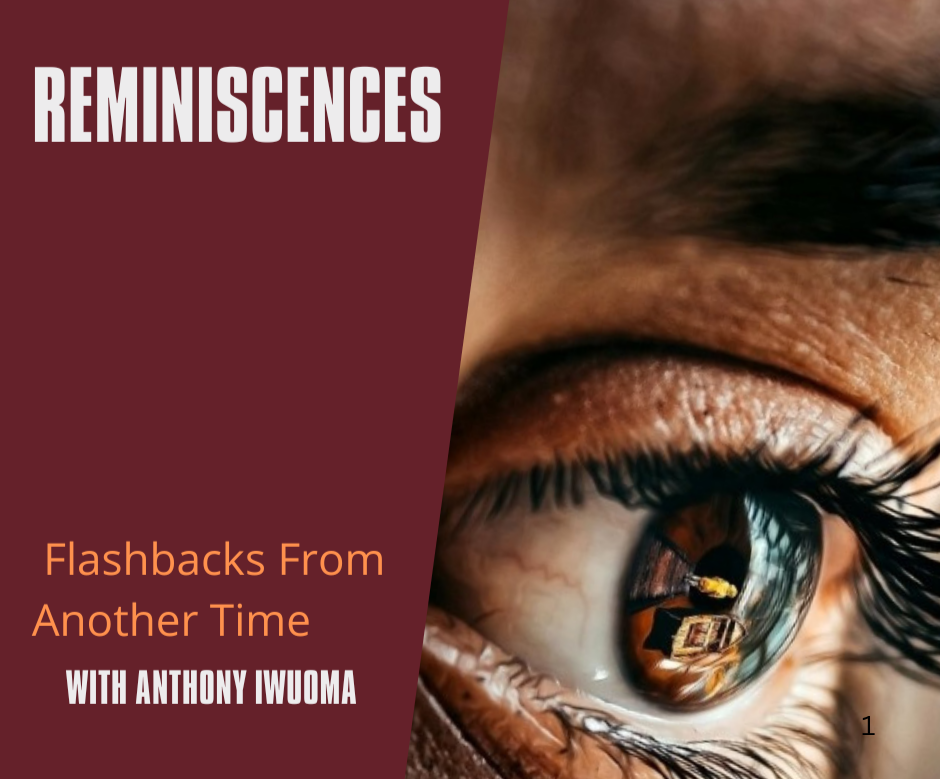
By Anthony
Kindly share:
Nigeria is a country that has mastered the art of performing dysfunction with the confidence of a Broadway ensemble. Everything here comes with a soundtrack, even our problems hum in chorus.
The politicians rehearse their lies with the dedication of Nollywood actors preparing for opening night. But in the middle of this national theatre stands a troupe more dramatic than all others combined: the prophets who have mistaken the pulpit for a spotlight and God’s name for a marketing slogan.
Among the more recent spectacles was a public statement by some Primate, who confidently passed a sweeping judgement on the entire Igbo ethnic group. The breathtaking arrogance with which he stood before millions and distill an entire people into a single spiritual diagnosis is disgusting. It takes a very special kind of audacity to speak as though God outsourced His ethnic analysis to this ministry’s media department. Only in Nigeria can a man declare a whole tribe doomed and still expect applause for spiritual insight.
This, perhaps, is the true genius of our homeland: the ability to take bigotry, sprinkle a handful of Bible verses on top, and present it as prophecy. Nigeria may not have solved her myriad problems but we have perfected the art of dressing prejudice in holy fabric.
The truth is painfully simple: the real trouble of Nigeria is not demons, witches, or whatever spiritual scapegoat is fashionable this season. It is bigotry, plain, unvarnished, unapologetic bigotry, amplified by pulpits that have become more concerned with going viral than with saving souls.
Our prophets used to be custodians of conscience. Today, some are custodians of controversy. Worse still some are witch doctors adorned in cassock, claiming to be oracles of God and yet too far from Him. They know exactly how to poke at the open wounds of a fractured nation. They know exactly which tribe to accuse, which political faction to flatter, which sensational “revelation” will capture the algorithm’s affection. And they deliver the performance with theatrical solemnity, as though gravity and thunder were waiting backstage for their cue.
Nigeria’s modern prophecy is not about divine insight. It is a show business with incense. The microphone has replaced meditation; the spotlight has replaced spirit. Sermons are no longer delivered; they are premiered. And the target audience is not the weary soul seeking redemption but the online crowd craving entertainment. In this crude market of spiritual capitalism, nothing sells faster than tribal tension.
So, when a religious figure announces that the Igbo, or any ethnic group, is cosmically disqualified from national leadership, he is not transmitting heavenly truth. He is participating in a familiar Nigerian pastime: the weaponisation of identity. It is a game as old as the country itself: point fingers at a tribe, wrap your accusation in scripture, and hope that no one notices you are merely echoing the prejudices of your own generation.
Of course, these “prophecies” always come with a noble disclaimer. After stirring national outrage, the preacher quickly explains that he was misunderstood. His heart is pure. His intentions are divine. His message was taken out of context. Apparently even God’s messengers need crisis-management teams these days. The whole performance has the polish of political spin, except politicians at least have the decency to pretend they researched their claims.
You will never hear bold revelations about the divine consequences of looting, rigging, oppression, or merciless governance or calls to repentance. The heavenly radar, for some reason, only picks up the sins of the poor, the ambitions of minorities, and the imagined curses haunting particular ethnic lineages. It is a remarkable coincidence that spiritual insight always aligns perfectly with societal bias.
Meanwhile, the nation burns quietly. Bandits roam with the confidence of landlords. Inflation pirouettes upward with the elegance of ballerina gone rogue. Hunger stalks families like a patient predator. Hospitals limp along like wounded soldiers. Schoolchildren are whisked into forests and Generals are killed. But instead of using their platform to confront the systems responsible for this carnage, many prophets are busy constructing astrological charts of tribal destiny. They diagnose imaginary curses because real problems demand real courage. And courage is in short supply.
Nigeria has elevated a culture where some prophets function as public entertainers instead of moral guardians. They do not trouble the powerful; they trouble the powerless. They do not challenge injustice; they challenge imaginary demons. They do not preach unity; they issue divine press releases that reinforce the fault lines our fragile nation is desperately trying to heal.
It would be one thing if their proclamations were mere harmless comedy. But words have consequences. When a cleric with thousands of followers proclaims that a tribe is spiritually defective, he legitimises prejudice. He baptises hatred. He lends divine authority to discrimination. He gives ordinary bigotry a sacred stamp. And in a country where ethnic suspicion already hangs in the air like humidity, such pronouncements pour petrol on an open flame.
What makes this phenomenon truly tragic is that Nigeria urgently needs spiritual voices, real ones. Voices that can speak truth to power without trembling. Voices that can soothe the pains of a nation held hostage by wickedness. Voices that remind us that the poor are not cursed; they are oppressed. Voices that insist that tribe does not determine destiny; leadership does. Voices that call for justice, not superstition. Voices that preach equality, not ethnocentric astrology.
But such voices are drowned out by the noise, the holy or unholy noise, the commercial noise, the prophetic noise designed to trend, not to transform.
Our pulpits, instead of rising above the tribal chatter, have often sunk into it. Rather than healing the nation’s fractures, they amplify them. Rather than bringing hope, they use fear to shackle the gullible. Instead of calling Nigerians to rise above ethnic politics, some prophets have become its loudest ambassadors. The pulpit has mutated into an ethnic scoreboard, where tribes are measured, weighed, and judged like contestants in a celestial election they never signed up for.
And, perhaps, that is the saddest part of this story: the pulpit was once the last refuge of truth in Nigeria. When governments lied, the pulpit spoke. When societies discriminated, the pulpit sanctified the oppressed. When power corrupted, the pulpit resisted. But now, in many tragic instances, the pulpit has become a mirror of the nation’s worst impulses, vain, tribalistic, obsessed with attention, allergic to accountability.
Yet despite all this decay, Nigeria remains oddly hopeful. Nigerians still believe in the transformative power of faith. They still trust religious institutions more than political ones. They still gather every week seeking spiritual strength to survive a country that tests their endurance daily. And it is precisely this trust that makes the misuse of the pulpit so dangerous. When people believe you speak for God, your errors echo with terrifying authority.
This is why the stereotyping of the Igbo or any ethnic group is not a minor misstep. It is a betrayal of spiritual responsibility. It is an abuse of influence. It is a distortion of the sacred. It is a wound inflicted on national unity, disguised as divine counsel.
Nigeria is not cursed by tribes; it is cursed by tribalism. Nigeria is not afflicted by ethnic destiny; it is afflicted by leaders, political and spiritual, who exploit division for relevance. Nigeria is not endangered by who wants to be president; it is endangered by who wants to be prophet.
The real trouble of Nigeria is not found in prophecy or prayer. It is found in the stubborn arrogance that believes God’s voice sounds suspiciously like our prejudices. It is found in pulpits that should be sanctuaries but have become mortuaries for souls of the misled. It is found in religious leaders more committed to trending than to truth. It is found in the ease with which we blame ethnicity for failures caused by human choices.
If Nigeria is to survive its own chaos, we must demand more from those who claim spiritual authority. We must stop accepting bigotry clothed in cassocks. We must stop mistaking theatrics for revelation. We must rescue faith from the performers who have kidnapped it. We must reject the idea that destiny is tribal and insist instead that destiny is national.
For no ethnic group is cursed.
But a nation that worships prejudice may well be damning itself.





